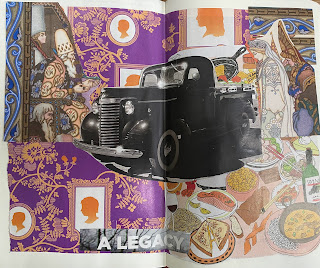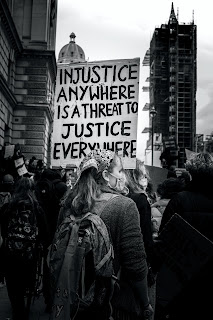Expressive Therapy Theses 2008

We are so proud of our 72 graduating students from the Expressive Therapies program here at Lesley University - graduating with specializations in Art Therapy, Dance Therapy, Music Therapy and Expressive Arts Therapy, and Mental Health Counseling.
Each of our graduates are required to do two years of clinical internship training in addition to scholarship and research in their respective modalities. And many students also opt to do thesis research.
This year's theses include:
- Arrants, K. (2008). Creating acceptance: Expressive therapy with lesbian and bisexual women.
- Berry, C. (2008). When the glass slipper doesn’t fit: A study of fairy tales and disability.
- Corbin, S. (2008). A treatment protocol for the use of music therapy in meeting the special education goals of children with Pervasive Developmental Disorders.
- Dawkins, R. (2008). Attachment, relationships and Alzheimer’s: A group art therapy process.
- Eskridge, C. (2008). Emotion: The intangible pirate ship.
- Ho, S. (2008). Children’s words about pain: An investigation on children’s perception of pain using music.
- Jacobs, L. (2008). Supporting women through labor: Can music therapy deliver?
- Jolicouer, R. (2008). Recovery and transformation from childhood sexual abuse utilizing expressive therapies and holotropic breathwork: A personal journey.
- Jordan, C. (2008). Evil queen, superhero, friend: Using role theory to explore the drama therapist role.
- Kalma, D. (2008). Feeling the pain of the world, and making use of it! Music therapy for supporting and transforming humans’ innermost responses to world conditions.
- Kolodziel, D. (2008). Music for self, music for others: An exploration of one music therapy student’s changing relationship with music.
- Krim, M. (2008). My lost identity as an immigrant: The journey of finding self.
- Moldover, A. L. (2008). Refocusing the lens: Using photography to overcome personal traumas.
- Nam, J. (2008). The effect of music therapy in reducing behavior problems in children with autism and rare syndromes in a school setting: A six week case-study.
- Newberry, S. J. (2008). Speaking the same language? Music therapy with linguistically diverse clients.
- Northup, C. (2008). Uncovering the nature of internal dialogue, how music and yoga effect my own, and therapeutic implications for treating clients with thought disorders.
- Novotny, J. (2008). What we wove.
- Rubesin, H. (2008). Rebuilding the container: How to use expressive arts therapy as a means to create images of pregnancy within group prenatal care.
- Sakai, T. (2008). Identifying the components of love in music therapy: Clinical intimacy in the end-of-life care.
- Saracino, F. (2008). How music and music therapy can therapeutically assist victims of trauma in identifying and processing their experience.
- Shum, W.W.A. (2008). The impact of music assisted relaxation treatment on mood among individuals with stroke during their rehabilitation.
- Slomin, J. (2008). Grant us the space to grieve!: A phenomenological exploration of the experience of grief in expressive therapy students and implementation of a peer-led expressive therapy bereavement group.
- Sullivan, D. G. (2008). Bringing focus and calm to the classroom using yoga and the arts.
- Teczar, E. (2008). The effects of performance anxiety in music therapy.
- Villanueva, M. M. (2008). Shattered In body and mind: Addressing symptoms of Post Traumatic Stress Disorder in combat war veterans through music therapy.



Comments
Yes, the theses are available. Just email me at estrella@lesley.edu to request a particular topic.
Thanks,
Karen